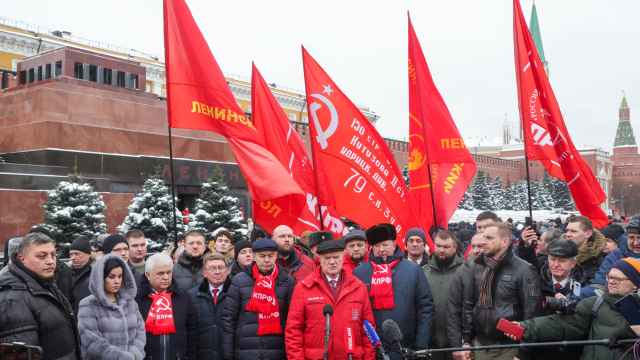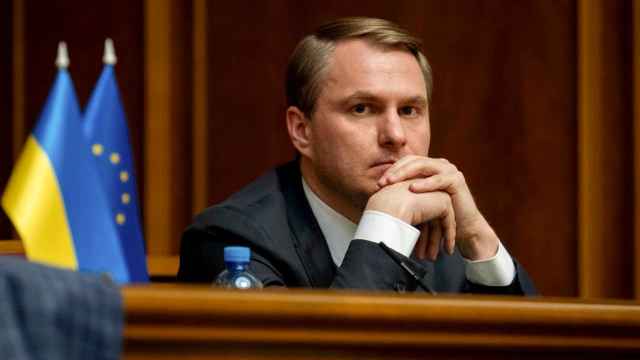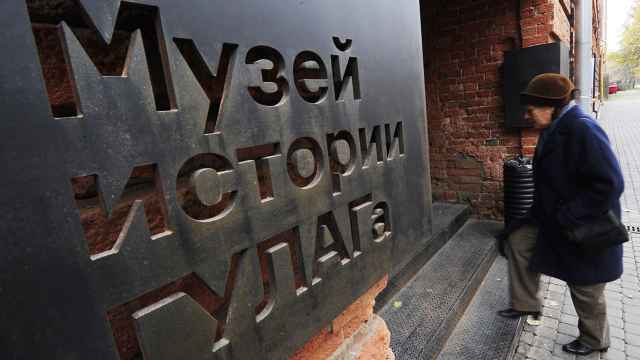It's done. After an 18-year humiliating wait in the anteroom, Russia finally ratified the WTO protocol on Tuesday, June 10, and is now a fully paid-up member of the world's biggest trade club.
Why is accession important? Membership comes at a very real monetary cost: Economic Development Minister Andrei Belousov put a number on it, telling Duma deputies that WTO accession could mean $13 billion of lost revenues to imported competition through 2014.
But the Kremlin is willing to accept this in exchange for increased competition in the marketplace that is designed to force Russian companies to modernize and work more efficiently.
That is the most widely quoted benefit from accession, but there are more and less obvious benefits. It is hard to assess just how important the increase in competition will be. The state is struggling to push through reforms to liberalize the market, but it is hoped that the pressure of competition will highlight where the weaknesses are and change the nature of reforms from theoretical speculations of what Russia "should do" to a more pragmatic "what we need to do" basis. There will be specific issues that have created weaknesses that inbound importers will exploit to Russian companies' detriment.
Where Russian owners were mainly focused on abusing their market power and/or corrupt officials to milk the system, tap state funds or charge excessively high margins in the past, now these same owners will have to use their connections in the government to push through market-leveling legislation and administrative regime changes in order to better compete with their foreign rivals. Accession should (slowly) bring about a sea change in the mindset of how owners work with the government from here on in. Well, that is the hope anyway.
However, what is less widely acknowledged is that Russia is already in a great position to capitalize on WTO accession in that it already runs the most open trade and capital account regimes of any of the significant global emerging markets.
Brazil has imposed special taxes on inbound capital to cool its capital market and stop the real appreciating. China doesn't even pretend to run an open currency or trade regime and despite the huge investment there, foreign companies have a hard time making money or getting profits out. And the administrative trade barriers to foreign business in India are legendary.
In this setup, Russian companies (and foreign companies) are in a much better position to capitalize on the free flow of goods and capital that WTO membership offers. And it is already happening: bear in mind that a quarter of the $85 billion of capital flight in 2011 was actually Russian companies reinvesting profits earned from their foreign assets abroad. (These profits never touch Russian shores and have nothing to do with the Russian economy, but are included in the capital flight numbers because of an accounting quirk.)
There is already a steady stream of consumer-related businesses arriving in Russia, such as all the fast-food companies that arrived last year, like KFC and Burger King. But this stream could turn into a flood as Russia is already on the verge of becoming the largest consumer market in Europe, and the first trade barriers to fall following yesterday's vote will be those on consumer goods.
But maybe the biggest and most important benefit that WTO membership will bring is that it should bring the cost of goods down.
The cost of living in Russia (and especially Moscow) is famously high. Journalist Yulia Latynina once poignantly asked why a cup of coffee in Moscow cost as much if not more than the same in London or New York when the average income was less than half of those in the West.
The reason, of course, is the closed nature of the Russian market, which allows big companies to charge huge margins with impunity and has lead to the astronomical growth and creation of a super-rich class filled by all businessmen that have successfully set up and captured a market niche. That will start to change.
This will also have important political consequences. Going into the Duma elections last year, a survey found that the No. 1 biggest concern among voting Russians was the high cost of living. WTO-inspired competition could start bring down prices from this year to a level more appropriate to Russia's income levels. Making life more affordable will make life better and so make President Vladimir Putin more popular. If he does have ambitions to stand again for the presidency in 2018 (the gossip in the Kremlin is that he won't, but that could change), then he will be able to point to lower prices as a real and significant (and vote-winning) achievement of this term in office.
A Message from The Moscow Times:
Dear readers,
We are facing unprecedented challenges. Russia's Prosecutor General's Office has designated The Moscow Times as an "undesirable" organization, criminalizing our work and putting our staff at risk of prosecution. This follows our earlier unjust labeling as a "foreign agent."
These actions are direct attempts to silence independent journalism in Russia. The authorities claim our work "discredits the decisions of the Russian leadership." We see things differently: we strive to provide accurate, unbiased reporting on Russia.
We, the journalists of The Moscow Times, refuse to be silenced. But to continue our work, we need your help.
Your support, no matter how small, makes a world of difference. If you can, please support us monthly starting from just $2. It's quick to set up, and every contribution makes a significant impact.
By supporting The Moscow Times, you're defending open, independent journalism in the face of repression. Thank you for standing with us.
Remind me later.






